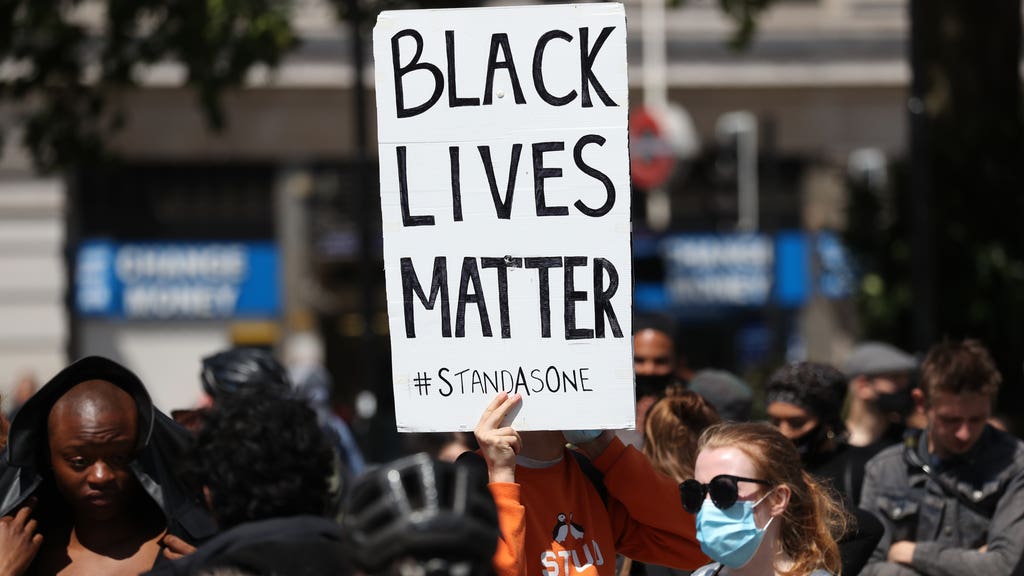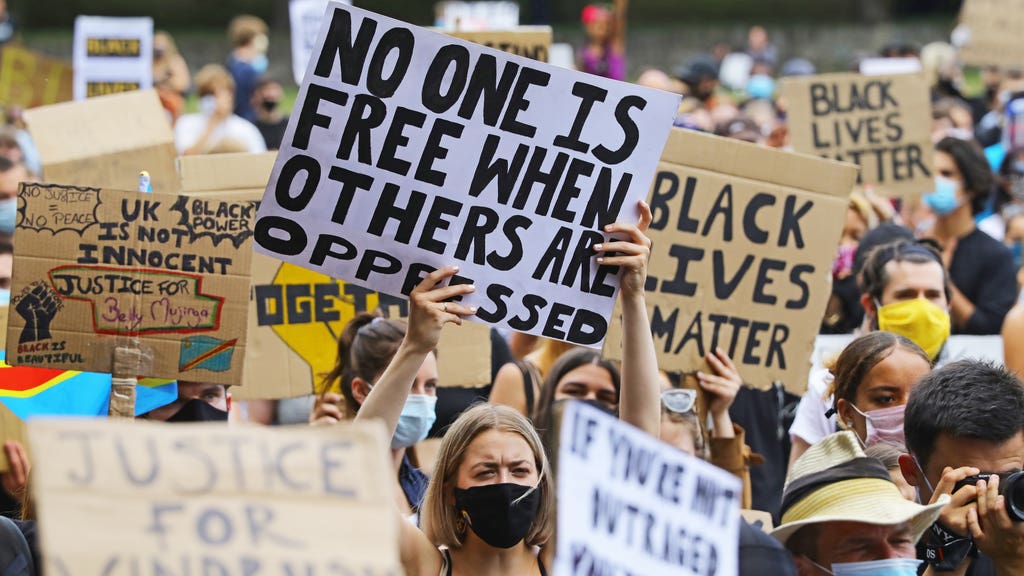Why celebrate Black History Month? Perhaps ask yourself, why not?
October is a time for honouring Blackness within a society that broadly still questions the legitimacy of doing so

Your support helps us to tell the story
From reproductive rights to climate change to Big Tech, The Independent is on the ground when the story is developing. Whether it's investigating the financials of Elon Musk's pro-Trump PAC or producing our latest documentary, 'The A Word', which shines a light on the American women fighting for reproductive rights, we know how important it is to parse out the facts from the messaging.
At such a critical moment in US history, we need reporters on the ground. Your donation allows us to keep sending journalists to speak to both sides of the story.
The Independent is trusted by Americans across the entire political spectrum. And unlike many other quality news outlets, we choose not to lock Americans out of our reporting and analysis with paywalls. We believe quality journalism should be available to everyone, paid for by those who can afford it.
Your support makes all the difference.I wish I could have a tenner each time I hear the ignorant question: “What about White History Month?” White narratives are amplified each and every day; it’s our stories – Black perspectives – that remain consistently marginalised or erased altogether. While that continues to be the case, and as Afriphobia blights Black lives in this country, Black History Month will continue to be essential.
Another frequent point I hear is: “Well, Black History Month should be every day.” Touché! Indeed it should and for me, and those in my tribe, it absolutely is. But across wider society it isn’t and while racism exists, it is incumbent on each member of society to work towards dismantling it. Maybe then we genuinely won’t need this month.
But until such time, while both social media timelines and corridors of power alike continue to echo choruses of denial about how Black people truly fare, I welcome this occasion as an annual space to celebrate, promote and understand the Black experience, past and present.
I hesitate to regurgitate the sentiment that, “October should be about highlighting Black achievement”, simply because the richness of our existence – our history – boasts a variety of elements above and beyond “achievement”. There is the struggle, the laughter, the pain, the mediocrity, the fun, the ills, the joy, the bland and the creative.
October is a time for honouring Blackness within a society that broadly still questions the legitimacy of doing so. It’s two fingers to the bigots and a comforting pat on the back for us in this cold world.
And, yes, it’s also a time for reflection on the work that must be done to tackle systemic injustices perpetrated against Black people across every sector from private to public, healthcare, education, the criminal justice system and beyond.
Blackness has been thrust into the fore over the past year in the wake of the global resurgence of the Black Lives Matter movement after George Floyd’s murder at the hands of white serving police officer Derek Chauvin.

But equally, so much has happened to show how far we still have to go to achieve racial equality in Britain. We’ve seen the publication of the widely contested, government-backed race report, which concluded that institutional racism isn’t an issue in Britain – an insult to the vast majority of Black people whose lived experiences say otherwise. The Sussexes’ interview with Oprah Winfrey exposed concerns of bigotry at the heart of the upper echelons of our society. We’ve seen report after report, study after study, survey after survey that only further reveal the plight of Black people in Blighty. And yet there has been little follow-up from policy makers regarding a plan of action to remedy key problems.
Ghanaian journalist, analyst and pan-African activist Akyaaba Addai-Sebo is credited with helping to introduce October as Black History Month in the UK from 1987. This came after a visit to America where its first Black History Month was launched in February 1970. We observe this event in October because doing so, at this time, signifies a divine “reconnection to our source”, according to the founder.

The connection to October is deeper than you may think. October is traditionally heralded in Africa as a harvest season, replete with the promise of abundance. “October is also a period of tolerance and reconciliation in Africa, when the chiefs and leaders would gather to settle all differences,” Addai-Sebo wrote in Black History Month magazine.
This was, typically, a time for introspection and collective planning for future prosperity. “We were also thinking about the children, and what to bequeath to them. October is more or less the beginning of the school year; their minds are refreshed and revitalised, so they can take in a lot of instruction,” he added.
These are the same Black children who aren’t generally taught about our history in schools but are disproportionately excluded from these institutions, over represented in pupil referral units, less likely to get jobs after attending university and more likely to be denied promotions in their respective places of work.
Just a few hours ago, I received the following tweet from an anonymous account: “Black history is false, they have contributed very little to the world. Hug a white person and say thank you for all the great contributions you’ve made to the world, be proud to be white.” This is what we’re up against.
Celebrating us for four weeks is actually the bare minimum when you assess the current state of affairs. So, for me, the question is not, “Why celebrate Black History Month?” but actually, “Why not?”.